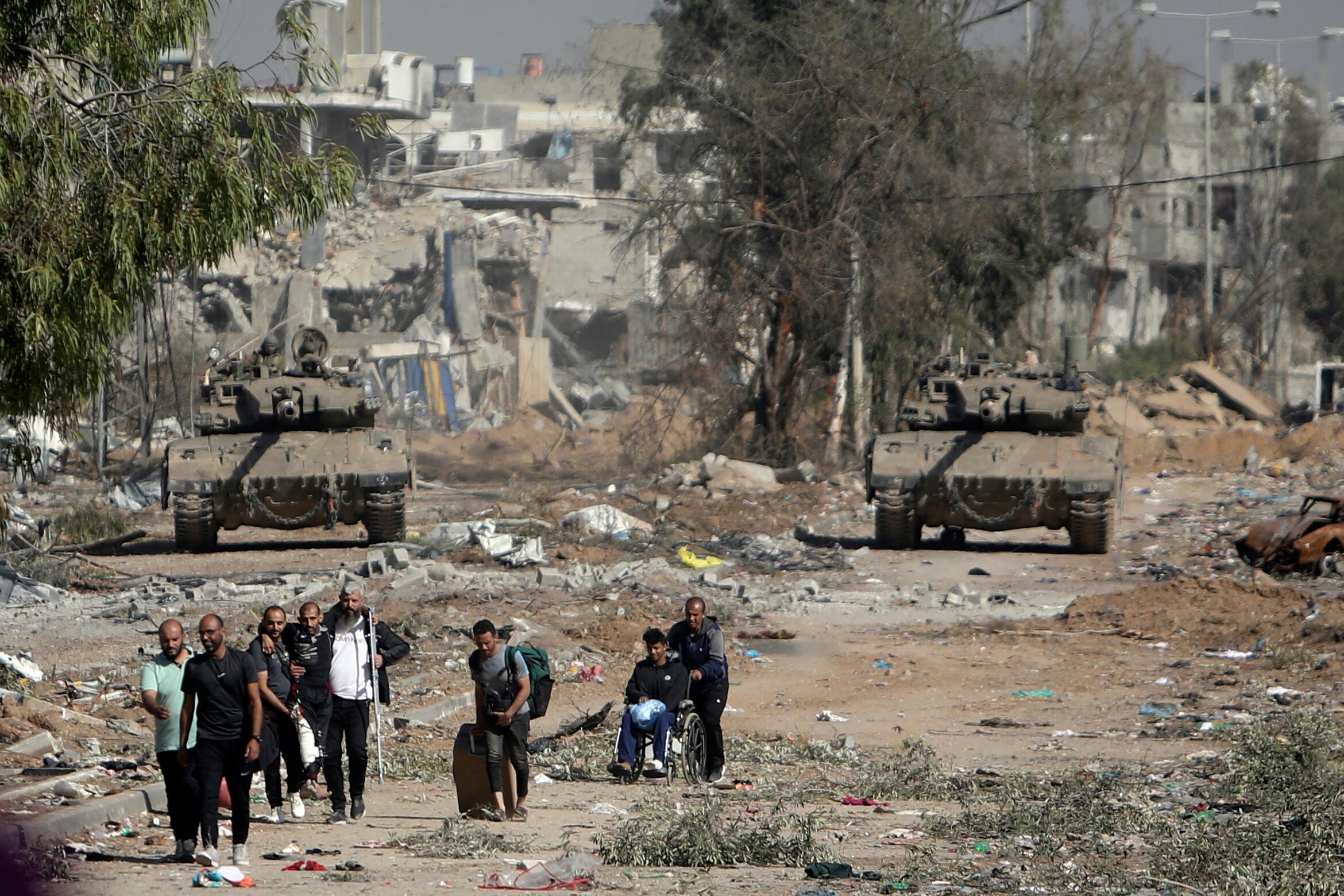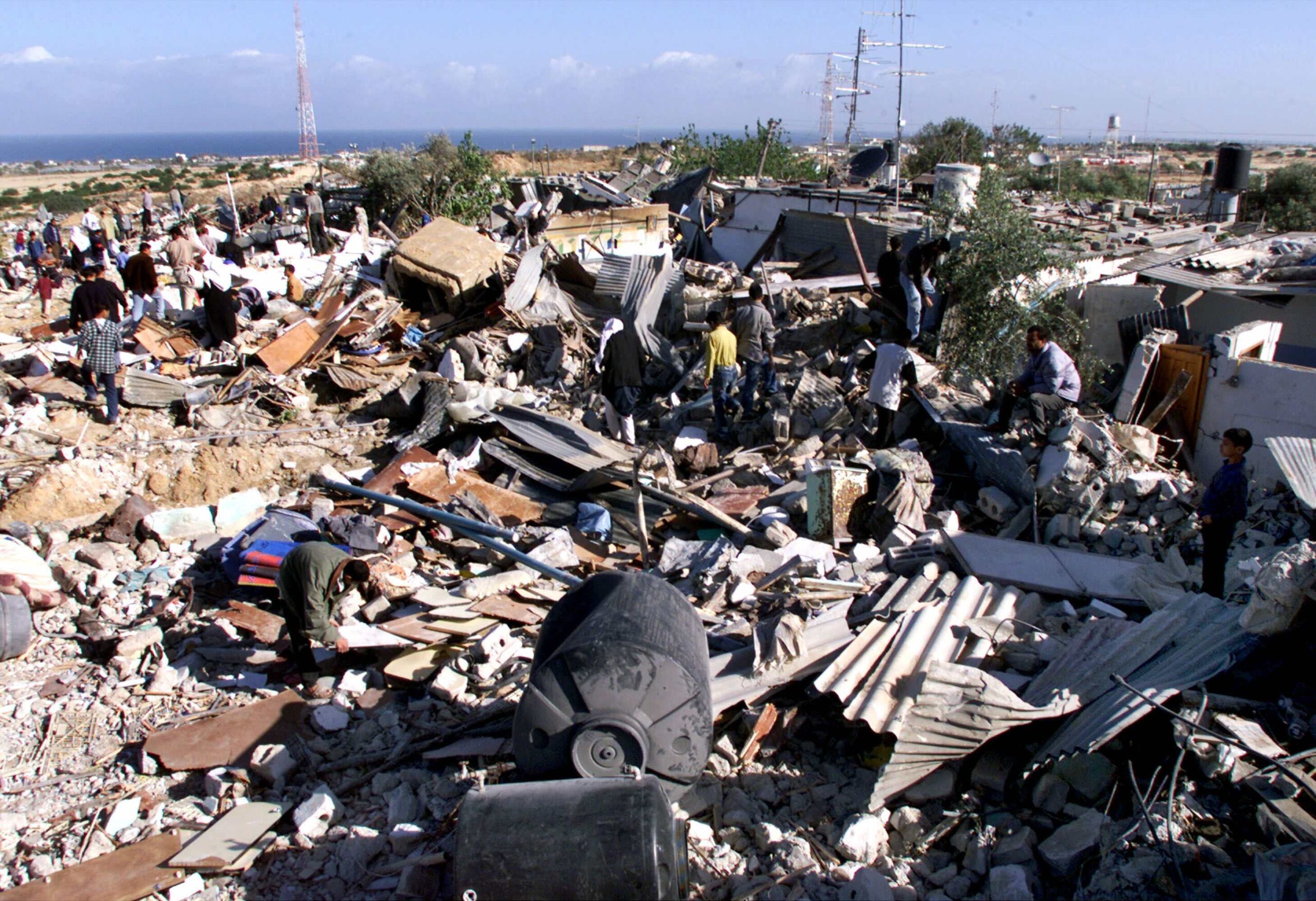Israeli officials announced on Sunday that the Israel Defense Force has concluded its ground campaign against Hamas in Gaza, stopping short of a full-scale invasion of the southern city of Rafah. The IDF withdrawal—which Israel insists does not mark an end to the war or rule out a later invasion of the city—comes just days after the United States government intensified calls for a ceasefire, threatening further military aid as the war enters its seventh month.

First reported by The Jerusalem Post, the IDF has withdrawn its entire 98th Division from the city of Khan Yunis, Gaza’s second-largest urban area, leaving behind the Nahal Brigade and portions of the 401st in northern and central Gaza. At the peak of the war, Israel had five divisions—between 30,000 and 40,000 men—embedded in Gaza, with even more manning the border defenses. These forces were scaled down in January once the IDF declared “operational control” over northern Gaza, freeing up troops to face off against Hezbollah elsewhere.
However, the 98th has remained occupied in Khan Yunis since December, reportedly locating and destroying a number of Hamas tunnel networks. According to the Post, the IDF’s mission in the city was largely completed by February, but the Israelis continued to hold the city to achieve concessions from Hamas in hostage exchanges.
Learn the benefits of becoming a Valuetainment Member and subscribe today!
Following the withdrawal from Khan Yunis, the local Palestinian population displaced by the invasion began to return, finding over half the city reduced to rubble. According to the Associated Press, nearly 45,000 buildings have been damaged or destroyed, leaving much of the city uninhabitable for the returning refugees. At the same time, Hamas immediately declared the drawdown a victory and indicated that it hopes to reestablish a foothold in the area.

After the Post report, IDF officials insisted that the withdrawal does not constitute an end to the war, but rather a strategic move to prepare for further operations against Hamas in Rafah.
“It is a decline in the forces but there are more operations that need to be conducted. Rafah is clearly a stronghold. We need to dismantle Hamas’ capabilities wherever they are,” IDF Lt. Col. Peter Lerner told the BBC. “The war is not over. War can only be over when they [hostages] come home and when Hamas is gone.”
According to the IDF, opening up Khan Yunis for resettlement will encourage Palestinian civilians to leave Rafah, making future operations there easier. This assessment was shared by US National Security Council spokesman John Kirby, who described the pullout as “really just about rest and refit for these troops” and “not necessarily … indicative of some coming new operation for these troops.”
Related: White House to Give Israel 25 F-35s, Billions of Dollars in Weaponry Under New Arms Deal
In a video statement on Monday, Israeli Prime Minister Benjamin Netanyahu declared that the invasion of Rafah “will happen. There is a date,” but did not elaborate.
Rafah is currently home to more than a million people, most of them displaced from northern Gaza. Meanwhile, it is also believed that most of the surviving hostages taken during the October 7 attacks are being held somewhere in Rafah, which Israel says is its primary motivation in continuing the invasion.
Although the US government has continued to supply weapons to the IDF since the war began, the Biden administration has become more vocal in its opposition to continued hostilities. Days before the withdrawal, President Joe Biden criticized Israel for killing seven aid workers in a drone strike, and also leveraged further weapon shipments to convince Israel to open the Erez Crossing and the Ashdod port for aid deliveries.
Israel has denied that the drone strike was intentional and claims that the border openings and the withdrawal were not motivated by pressure from the US.
Connor Walcott is a staff writer for Valuetainment.com. Follow Connor on X and look for him on VT’s “The Unusual Suspects.”



















Add comment